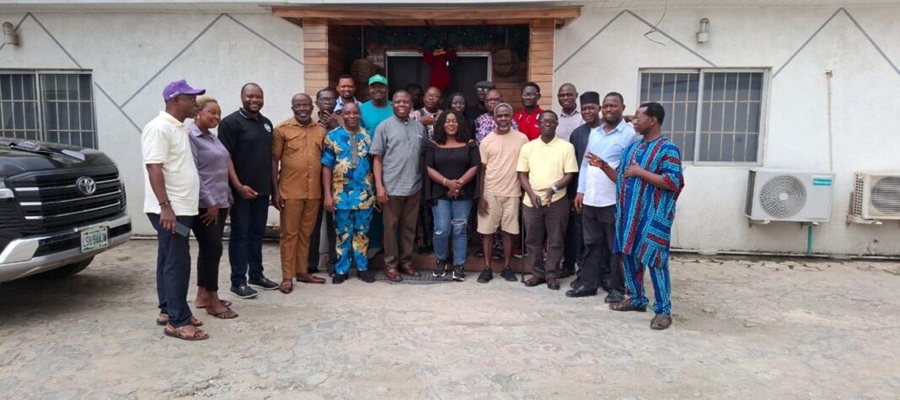Broadcasting
Why Digital and Tech Skills Need to be Included at all Levels of Education

Education is, without a doubt, a fundamental human right. Today, digitalisation enables us to improve education and provide equal access to all. But where do we even begin?

In a world when everything is online and any business that isn’t online is losing money, failing to teach our children digital skills for today and tomorrow will only widen our continent’s skills gap. This is due to the fact that more than half of today’s professions demand technical abilities.
So, why is it critical for the technology industry to be involved in education at all levels?
Nurture future champions of the industry
Technology literacy and digital literacy are crucial for Africa’s future. And while we are making progress with the introduction of coding in primary schools in countries like Kenya and South Africa, we still have a ways to go.
“We know that every technology business is hampered in its growth by a severe lack of talent across Africa, and it is up to us as a part of that ecosystem to help develop and nurture future champions of the industry,” says Sean Riley, CEO at Ad Dynamo by Aleph.
“Unfortunately, there is still a substantial skills gap in Africa, and to solve it, we must begin at the grassroots level. We live in an increasingly digital world, so it is only logical that we begin teaching digital digital skills,” adds Riley.
Provide more flexible pathways
According to a World Economic Forum report, 65% of today’s primary school children will eventually be working in job types that do not exist yet, while the International Finance Corporation (IFC) estimates that by 2030, more than 230-million jobs in Africa will require digital skills.
“It is therefore clear that emerging economies face significant upskilling challenges, which need to be addressed throughout the educational careers of young people. Businesses and educational institutions must work together to ensure that learners are equipped to handle the ever-changing nature of work. The business sector, in particular, should take the lead in this regard, whether through training sessions, providing more flexible skills pathways, or through the recognition of short courses, as well as online and self-learning,” says Vanashree Govender, Huawei SA spokesperson.
Technology innovation is happening so quickly that training must now be adjusted constantly, almost in real-time, as new systems, applications, and devices come to market.
Conscious of the need for technology-driven upskilling, Huawei has built strong relationships with training and education institutions, and established programmes such as our ICT Academies at universities and TVET colleges, and our Seeds for the Future programme which aims to develop skilled, local, ICT talent.
Contextual education
Education needs to be contextual. “ It should enable children to understand things around them and prepare them to be ready for real-world challenges. As technology has become ubiquitous, it is important to teach children how it impacts the world and help them understand how it can be utilised to solve various problems,” says Andrew Bourne, Regional Manager, Africa – Zoho Corp.
Prepare students for an evolving workplace
Students require more than a functional knowledge of digital and technological skills to succeed in the world. By incorporating these technologies into the normal curriculum and ongoing activities, institutions ensure that their students are more equipped for the modern workplace.
Broadcasting
Tim Akano Recounts 20-Year Growth, Media Support at NITRA End-of-Year Meet

Mr. Tim Akano, New Horizons Chief Executive Officer, took centre stage at the Nigerian Information Technology Reporters’ Association (NITRA) annual end-of-year meeting on Thursday, December 18, 2025, recounting the company’s remarkable growth and reaffirming free IT training for journalists.

Tim Akano, New Horizons Chief Executive Officer, in a group photograph with NITRA Members
Speaking directly to IT media members at the company’s training facility in Lagos, Akano acknowledged the critical role journalists played in supporting New Horizons during its formative years two decades ago.
He detailed how the firm evolved from a handful of staff to one of Africa’s leading ICT skills training organisations, now employing about 500 staff across multiple training centres nationwide.
Akano Spotlights Youth Training, University Partnerships
Akano highlighted that New Horizons has trained over 500,000 youths, particularly tertiary institution students, equipping them with practical IT skills essential for Nigeria’s digital economy.
He announced recent partnerships with universities, including a new agreement with Afe Babalola University, to scale hands-on training programmes for students.
“This growth would not have been possible without the media’s support in documenting our journey,” Akano stated, pledging continued free IT skills training for media members to remain competitive in the evolving digital landscape.
Reciprocal Support Defines Long-Standing Partnership
The venue hosting the NITRA meeting underscored Akano’s generosity; NITRA Secretary Chidiebere Nwankwo secured the free facility after contacting him—a gesture consistent with New Horizons hosting multiple association events and training IT journalists since its inception 20 years ago.
Participants shared personal testimonies of Akano’s support, including veteran journalist Aaron Ukodie, whose daughter—an Accounting graduate from the University of Johannesburg—received NYSC placement and IT scholarship at New Horizons.
The Guardian’s Yemi Adeyemi recounted Akano accommodating his editor’s child for mandatory IT training after other firms declined.
Members praised Akano’s commitment to human capital development as evidence of deep appreciation for the media community that chronicled New Horizons’ success over two decades.
Broadcasting
NIMC rolls out Pre-Enrolment Portal for seamless NIN registration

National Identity Management Commission (NIMC) has launched the NIMC Pre-Enrolment Portal to revolutionise the National Identification Number (NIN) enrolment process, enabling applicants within Nigeria and in the Diaspora to capture biodata online prior to biometric verification at enrolment centres.

NIMC
Accessible via penrol.nimc.gov.ng, the platform allows users to fill enrolment forms, schedule appointments, upload supporting documents securely, and manage personal details directly, thereby slashing congestion, minimising wait times, boosting data accuracy and enhancing overall service efficiency at centres nationwide.
NIMC Director-General and CEO, Engr. (Dr) Abisoye Coker-Odusote, spearheaded the initiative as part of the Commission’s technology-driven strategy to fortify institutional performance, aligning with President Bola Ahmed Tinubu’s Renewed Hope Agenda that emphasises digital transformation, efficient public service delivery and inclusive national development.
Dr Kayode Adegoke, Head of Corporate Communications, highlighted key benefits including simplified biodata handling, confidential data protection through robust security measures, reduced physical centre visits and heightened operational effectiveness, urging all prospective enrollees to adopt the portal for a faster, citizen-friendly experience.[conversation_history]
The move underscores NIMC’s mandate under the NIMC Act No. 23 of 2007 to manage the National Identity Database, issue NINs and foster a reliable digital identity ecosystem vital for national planning, with users advised to complete pre-enrolment online before heading to selected centres for biometrics.
Broadcasting
MultiChoice Talent Factory Calls for Entries Into Fully Funded Film Training Programme

MultiChoice Talent Factory (MTF), a Pan-African film and television training institution, has announced the opening of applications for its 2026 intake.

MultiChoice
The fully funded programme is open to African graduates aspiring to become directors, filmmakers, scriptwriters, producers and storytellers.
According to MultiChoice, the nine-month accredited curriculum combines online learning with intensive in-person training, and is designed to balance theoretical knowledge with practical immersion.
MTF academies are located in Kenya, Nigeria and Zambia, and serve aspiring filmmakers from 14 African countries. Since its inception in 2018, the initiative has trained 296 filmmakers, with graduates producing more than 42 movies aired on DStv, GOtv and Showmax platforms.
Organisers said alumni of the programme have gone on to establish over 50 production companies, while many continue to work within the MultiChoice ecosystem.
Graduates have also won accolades at the Africa Magic Viewers’ Choice Awards, Kalasha Awards, Uganda Film Festival and Women in Film Awards.
Applications for the 2026 intake close on Feb. 27, 2026. Interested candidates can visit https://apo-opa.co/3XW53oE for programme requirements.

 E-Financial3 days ago
E-Financial3 days agoBanks quietly move to enforce new ₦50 transfer levy from Jan. 1

 General News3 days ago
General News3 days agoEcobank Guarantees Seamless Digital Banking Services Throughout the Christmas and Year-End Period

 News2 days ago
News2 days agoHow Moniepoint’s Founders, Tosin Eniolorunda and Felix Ike are Redefining African Tech and Finance

 Telecom23 hours ago
Telecom23 hours agoGoogle Finally Allows Users to Change Gmail Address, Keeps Data and Services Intact

 General News22 hours ago
General News22 hours agoT2 Backs Youth Excellence as NCBC Wins Bosun Tijani Foundation Basketball Tournament

 News21 hours ago
News21 hours agoInsomniaQ Spotlights African Creativity in Lagos






















